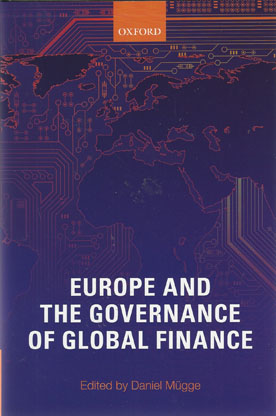
The European Union (EU) has emerged as a central actor in financial governance. Hardly any corner of European financial markets remains untouched by EU rules, and key regulatory competences have been shifted from national authorities to supranational ones.
At the same time, the global context has become ever more important for how and to what effect the EU regulates its financial markets. On the one hand, EU policymaking is embedded in global initiatives such as the Basel Committee on Banking Supervision. On the other hand, the EU now rivals the USA in its ability to shape global rules.
Scholars and practitioners cannot make sense of EU rulemaking without studying its links to global financial governance, just as to understand how global initiatives evolve they have to appreciate the rise of the EU as a global regulatory force.
This book charts and analyses this centrality of the European-global link in financial governance for the first time. Its chapters, written by experts in the specific fields, cover the whole breadth of financial markets.
They range from banking, auditing and accounting to derivatives trading, money laundering, and tax governance. This book offers comprehensive coverage of: how and why global and European financial governance have co-evolved over time; how global and European rules, institutions, and actors are linked today; and what this implies for future global and European financial governance.